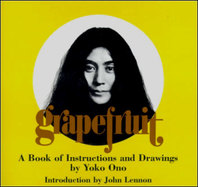To start our photography course in Year 13, we were given a six-week project to design a photography game. The concept proved challenging, as although there were various educational themes I could focus my game on in the fields of art history or techniques and processes, I wanted to consider the aspects of photography I had learnt and found most revolutionary in my work during Year 12. For example, I learned to accept that photography could be a personal and subjective art form rather than just a mechanical process with a purely documentary purpose.
…like every mass art form, photography is not practiced by most people as an art. It is mainly a social rite, a defence against anxiety, and a tool of power...
-- Susan Sontag, On Photography
With this in mind, I decided to research more abstract games from the Surrealist and Fluxus art movements. These games ranged from having no instructions at all to games which set explicit instructions with no explanation. A Fluxus example is Yoko Ono’s Grapefuit, which contains pages of directions for artists to follow in order for them to question their own mental and social restraints.
| At first glance Ono’s instructions may not appear to be games, but with reference to the characteristics of games they do have game-like qualities; a set of instructions with possible social or mental consequences the player follows under certain parameters to reach an end goal. Grapefruit reveals that a game can take any form, but realistically it’s a concept that is unlikely to become widely played, making it successful as a thought provoking art piece, but not necessarily a conventional family entertainment. |
The process of designing Obscura was fairly straightforward. Even if those playing the game in my test group didn’t fully grasp the amount of the control they had, cameras were operated and photographs were taken. The real challenge came in deciding how players could ‘win’. To refer back to the Monopoly example, spotting a winner in a business scenario of money and properties is fairly obvious. But how do you determine a winner in photography? Is one photographer superior to the other because their work is considered innovative or because s/he is admired by more people? Ultimately, all art is subjective, both on the part of the artist and the viewer. A photographer may have a certain philosophy about the making of a photograph, but the viewer is likely to infer something completely different. Can the photograph be considered unsuccessful because the viewer didn’t immediately understand the subconscious discovery made by the artist when pressing the shutter?
Despite these queries, the Obscura instructions do attempt to identify the criteria for ‘winning’. Each player votes for his or her favourite image. Of course, this could and should prove impossible if the game is played with a completely artistic mind set, essentially rendering the game self-destructive.
After completing the project, I was left wondering whether creating a game about this aspect of the photographic process is actually possible. In my opinion, to create a successful art piece you need only create it. Designing a photography game may mean redefining the notion of a game altogether.
-- Georgina Baker Year 13 student, Thomas Tallis School.


 RSS Feed
RSS Feed